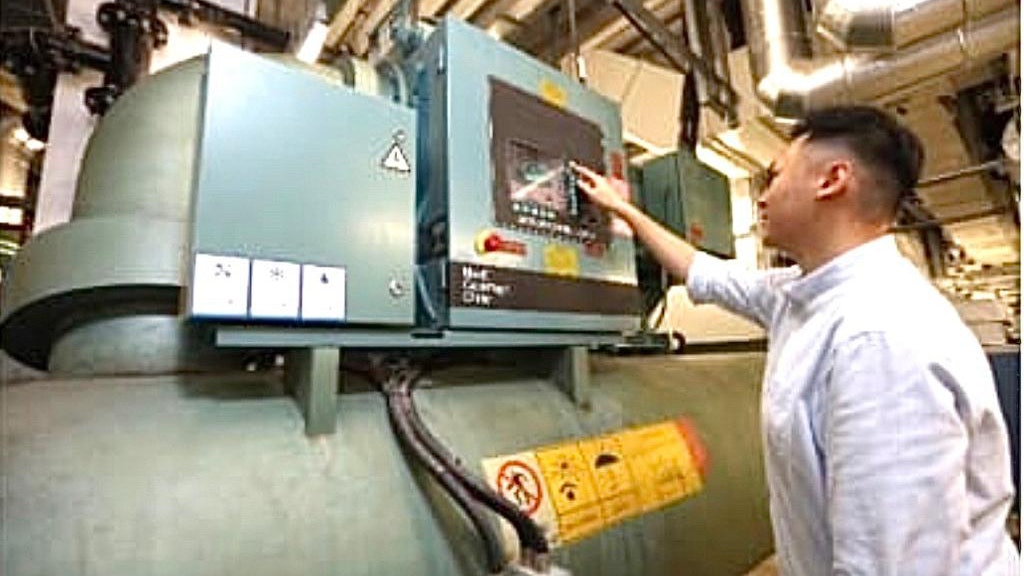Extreme climate affects the world. How to reduce carbon emissions is an urgent issue for Hong Kong and the global government in recent years.
As early as 20 years ago, public hospitals in Hong Kong began to implement environmental protection and energy-saving measures. Today, with the development and wide application of intelligent technology, in addition to replacing air-conditioning or lighting systems that are more energy-efficient, buildings can also make use of intelligent technologies including artificial intelligence. Technology to reduce energy and electricity use is believed to be the general trend of reducing carbon emissions in the future.
Written by: Yuan Bailiang, senior engineer and former president of the Institute of Engineers
As mentioned above, about 20 years ago, some hospitals in Hong Kong have gradually introduced concepts and measures for environmental protection and energy conservation, and some hospitals have introduced energy-saving investment plans to increase the motivation and incentives for private companies to reduce emissions.
With the development of technology, hospitals are also replacing large-scale engineering equipment that supports medical operations, making energy saving more effective. For example, since the air-conditioning system, which accounts for up to 40% of the hospital's electricity consumption, is replaced by high-efficiency refrigeration units to reduce energy consumption. power.
In the early years, the authorities changed the air-conditioning system of some hospitals to a cooling tower water-cooled system, which can help save energy and reduce emissions. However, if the system is operated with fresh water, it is more likely to breed bacteria and cause Legionnaires' disease.
Since 2015, the authorities have introduced innovative energy management projects, replacing the long-running air-conditioning units in many hospitals with high-energy-efficiency non-lubricating oil-free magnetic bearing-type variable frequency refrigerators. Replacing dozens of units can save energy every year The power consumption of more than 10 million kilowatt-hours was saved, and the system configuration was subsequently awarded the "District Energy Project Award" in the Asia-Pacific region of the American Society of Energy Engineers. This is the second consecutive year that the author and his team have won this award.
At present, after the introduction of advanced Legionnaires' disease monitoring and disinfection systems, high-efficiency water-cooled air-conditioning systems have reappeared in new hospital projects.
In recent years, the government has advocated the "re-calibration" of buildings, that is, retro-commissioning, including the use of intelligent sensors to inspect some "older" buildings. Since their air-conditioning units may have been running for a long time, the inspection system was set in that year. The various operating parameters of the air conditioner, whether it still maintains the best operating state after many years of use, and whether the electricity is used properly, etc., then experts will propose an energy-saving plan, such as matching the pressure, flow and temperature of the chilled water in the air-conditioning system with the load conditions. Adjust to the most power-saving state, etc.
The author was also awarded the Asia-Pacific "District Energy Project Award" by the American Society of Energy Engineers for the re-calibration work carried out in the hospital, which is the same award for three consecutive years.
In recent years, artificial intelligence has been further popularized. In addition to being used in architectural design and construction, the author believes that it can also be used in environmental protection and energy saving.
Some hospitals use artificial intelligence to calculate the power consumption and energy use of the building, and control the operation and speed of the refrigeration units. Because each unit will have different efficiencies at different rates, if the hospital patient usage data is available at different times. The change, the hospital will turn on each air-conditioning unit one after another as needed to cope with the increased air-conditioning demand, but how many units are turned on and the setting rate, in the past, mostly relied on experienced engineers to make adjustments, but now it can be adjusted by the artificial intelligence system. Calculate how to achieve the best energy efficiency, so as not to fail to achieve the effect of energy saving and emission reduction due to running too many units.
In addition, some hospitals in foreign countries have gone a step further. For example, by collecting environmental data such as weather temperature, humidity, sunshine, and wind speed, it can be used to estimate the usage of patient beds in hospitals, such as the number of people, changes in facility usage requirements, and various possible operating conditions. Mode and other information, to calculate how to make advanced automatic commands to drive the air-conditioning system to operate in real time to obtain the best performance. In fact, some hospitals in Hong Kong have implemented such pilot projects.
As the government has vigorously advocated energy conservation in recent years and has set a number of carbon reduction targets, it is believed that more organizations will introduce these artificial intelligence technologies to save energy and reduce emissions in the future, which will speed up the achievement of carbon neutrality in Hong Kong, and jointly contribute to environmental protection and the society as a whole. put in some effort.
"01 Medical Clinic" cooperates with senior engineer Yuan Bailiang to launch a column "Yuantu With You" every Monday to share the big and small matters of engineering and medical care.
Yuan Bailiang has always been committed to promoting the professional development of the engineering field, and he has just stepped down as the president of the Institution of Engineers.
Decades of professional journey are really worth remembering, and I am convinced that later generations may be able to understand the key points of the engineering profession.
Yuantu has you, let everyone experience it together.
Institute of Engineers holds innovation and technology expo, Changyuan Bailiang researches urban air purifiers and finally receives government funding for COVID-19|President of Institute of Engineers, Yuan Bailiang: I hope that the guidelines for restaurant ventilation will help protect the catering industry against COVID-19|Old building pipes are easy to spread Yuan Bailiang calls for the promotion of licensing system

